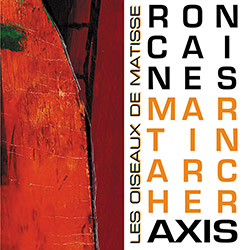
Saxophonist Ron Caines, who led the innovative band East of Eden in the late 60s, joins a septet including Martin Archer on reeds & electronics, Laura Cole on keys, Gus Garside on bass, Johnny Hunter on drums, Graham Clark on violin & guitar, and Herve Perez on live sound processing & shakuhachi as they merge improv with real time processing and studio collage.
In Stock
Quantity in Basket: None
Log In to use our Wish List
Shipping Weight: 3.00 units
EU & UK Customers:
Discogs.com can handle your VAT payments
So please order through Discogs
Sample The Album:
Ron Caines-alto saxophone, soprano saxophone
Martin Archer-saxophones, clarinets, electronics
Laura Cole-grand piano, electric piano
Gus Garside-double bass
Johnny Hunter-drums
Herve Perez-live sound processing, shakuhachi
Graham Clark-violin, electric guitar
Click an artist name above to see in-stock items for that artist.
UPC: 5051078963426
Label: Discus
Catalog ID: 072CD
Squidco Product Code: 26734
Format: CD
Condition: New
Released: 2018
Country: UK
Packaging: Cardboard Gatefold
Recorded at Chairworks, and at Discus Music Studio, in the UK, May to July, 2018. by David Watts and Martin Archer.
"Ron Caines was the mastermind behind East of Eden, whose groundbreaking first two albums Mercator Projected and Snafu, mixing psychedelic rock, jazz, bluebeat, poetry, electronics and studio experimentation, were massively influential on teenage me at a stage when I was starting to explore the limits and possibilities of music. It is a massive honour to be able to record with Ron all these years later. This CD is a collision of pure jazz skill happening in real time and studio collage. We hope, even though the music is quite different, that it contains a spark and continuation of the "arts lab" ethos of Ron's early work with E of E."-Martin Archer, Discus Music
"The 60s were a heady mix, a time when all purified categories were dissolving and being remade. East Of Eden emerged at the end of the decade, now seen as prog rock revolutionaries, psychedelic pioneers. A cult band appearing on the UK college and university circuit and making a tremendous impact at the Actuel Festival in 1969. The revolution was happening, and music was part of it.
Society had been grey, authoritarian and elitist. East Of Eden determined to be accessible and share in a democratisation of culture. The violin references Bartok and Mussorgsky and well as the anthemic Third Stone From The Sun and Eight Miles High. Marcus Junior and Confucius, two ska compositions by the now legendary Jamaican trombonist Don Drummond, became staples of the programme. Original material by Ron Caines referenced surrealist sources and spoken word poetry. Improvisation was a key element in the stage show. According to Paris critics this amounted to a "deconstruction of the idee-fixe, then a return to the familiar". We called such moments "the freak out".
The music on rock-pop label Deram became a condenser for emotions and ideas. Ideas were freighted in under the radar of the record company. We were a kind of proto art-rock group before the 70s and the era of niche sophistication. After three years of successful music making, guitarist Geoff Nicholson and myself left when personnel changes, management difficulties and musical policy issues imploded the band.
"Music is played in the moment, and then it's gone" said Eric Dolphy. Now, once captured in the recording studio, music no longer belongs in the moment but can be processed, transposed and transformed and relocated in space and time. Creative use of the studio becomes a "ghost performer" and we experience new landscapes of collaged sounds. Looking back, early efforts of East Of Eden aimed at a collage effect like pop art, Rauschenberg etc. But studio tools are much more proficient now.
From art school days I have felt defined as an outsider or outrider. Fixed in "the underground" East Of Eden did not become mainstream or enjoy commercial success. We were eclectic, inclusive, experimental. A willingness to be unacceptable, difficult, leading to experimental music deemed as elitist. A music of resistance for the contrarian. In the end it is this aspect of inaccessibility that intrigues me. The authentic moment. To that end I develop musically through instinct, impulse and the intelligence of feeling.
After years in Bristol, away from London, I subsequently moved to Brighton and have been hiding out on the south coast. This is where I met Martin and we played together. I thank him for this opportunity for my voice to be heard."-Ron Caines

The Squid's Ear!
Artist Biographies
• Show Bio for Ron Caines "Ron Caines began playing saxophone while at Bristol Art School, and during this time became enthralled by the music of Charlie Parker. He worked in commercial rock and roll bands which led to sessions at the Star Club in Hamburg. Returning to Bristol he formed the Contemporary Jazz Quintet with David Arbus on trumpet, and this led to a BBC 2 recording. He founded East of Eden with Geoff Nicholson on guitar and Dave initially on trumpet. They played the 1969 Actuel Festival in Amougies where Zappa, Beefheart , AACM and Soft Machine were also performing. Caines contributed original music and lyrics, and introduced ska material by Don Drummond and eclectic material including Mingus, Coltrane and the folk heart of Bartok (uniquely so for a pop band on a pop label in that pre-niche music era). In the climate of post-1968 Paris, where the band frequently played, their combination of theatre and live improvisation struck a chord with audiences and critics. The band's single Jig-a-Jig, subsequently re-released by Decca and promoted as a novelty instrumental, anticipated the genre of Celtic Rock, but its success effectively overshadowed the true direction of the group, and this confirmed Caines' disaffection with commercial music. In 1977 he joined Bristol Co-operative, the first improvisors' co-operative in the UK. He co-ordinated the Festival of Improvised Music, Arnolfini Bristol 1979 featuring Evan Parker, Derek Bailey and Leo Smith. He played in Keith Tippett's Ark, and various collaborations at venues including Glastonbury, Bracknell, and ICA. He worked with Larry Stabbins, Paul Dunmell, Julie Tippetts and others, and played with Steve Lacy. Caines summed up his musical aims at this time: "I am interested in improvised playing as a means of working directly with ideas, a process which the audience and musician can share at the moment of creation. To me it is not unlike drawing, and it is this evidence which is the work - unlike a 'finished painting', where the process which has taken it to that point, of being 'finished' has been brushed out." Around 1989 he formed Parkers Mood, with Nigel Jefferies on piano, playing an Arts Council tour, including Brecon Jazz Festival. He also performed original compositions for film, television and radio. He moved to Brighton in 1995, concentrating on painting, and gave up musical performance due to the long term effects of a tendon injury. However in 2008 he began performing again, initially with Brighton's Safehouse Collective and other local musicians. Caines is essentially interested in the idea of 'presence' and 'expressiveness' and the concept of the artist or musician as 'author'." ^ Hide Bio for Ron Caines • Show Bio for Martin Archer "Martin Archer was born in Sheffield, England, in 1957. He started playing saxophone at age 15 and first got active on the Sheffield improvisational scene in 1973. In the early '80s, he recorded an LP with Bass Tone Trap, his first group. In 1983 he formed the saxophone quartet Hornweb, which, in ten years of existence, released three albums. It is during that time that Archer released his first solo album, Wild Pathway Favourites (1988) and founded the Discus label on which he since releases all his music. In 1993, he disbanded Hornweb and turned to synthesizers and sequencers while shifting his activities from stage to studio. He developed a compositional approach in which he records improvisers soloing, then manipulates this raw material, combining it with electronics and structuring it into a whole new piece. This technique is illustrated on Wild Pathway Favourites, Ghost Lily Cascade (1996), and Pure Water Construction (with bassist Simon H. Fell, released in 1999). Later works such as Winter Pilgrim Arriving (2000) moved toward more constructed and less abstract pieces, even making room for melodies and rhythm tracks at times. Apart from his solo work, Archer is also involved in Ask, a duo with guitarist John Jasnoch, and Transient v Resident, an ambient electronics project with Chris Bywater."-All Music, François Couture "Martin Archer is a composer / improviser who is equally at home on stage or in the studio. His own distinctive saxophone playing is rooted in AACM jazz. Through his use of keyboards and electronics, and as a studio producer, he extends this interest into extended song form and leftfield rock music. He is also co-director of the uncategorisably avant choir Juxtavoices. His principle music work is the Discus Music label, the imprint for his various releases, notably by the groups described below. His current jazz based projects include Engine Room Favourites (current a 4 drummer, 14 piece big band), Story Tellers (6 piece group including shaman instruments alongside the conventional instruments), plus various ad hoc smaller groups. All of these are strongly aligned with AACM tradition and teaching. Archer has a long running duo with veteran vocalist Julie Tippetts. Each of their highly acclaimed CD releases deliberately explores song from a different perspective - the duo aims to be truly progressive, and takes in elements from jazz, rock, soul and pure abstraction. Archer's main live performance vehicle is the trio Inclusion Principle with Herve Perez and Peter Fairclough. The group operates in a space between electronics, nu-jazz, contemporary electroacoustic music and free improvisation. In performance you will hear pure jazz skill, electronic beats and areas of texture and abstraction all seamlessly woven into a fascinating and constantly shifting tapestry of sound. The sprawling Orchestra Of The Upper Atmosphere was formed by Archer as an improvising rock group with shades of Terry Riley, Magma, Alice Coltrane and Sun Ra, very much in the progressive / krautrock tradition, and noted for its large scale string, horn and vocal arrangements. Also in rock music, Archer is a member of the USA based heavier than plutonium prog / sludge / zeuhl group Combat Astronomy under the direction of Jamie Huggett. Surprising, delighting and occasionally alarming audiences for a number of years now, Juxtavoices is a 30 piece choir for mainly untrained voices co directed by Archer with Alan Halsey which has racked up dozens of performances and issued three CDs. This eclectic combination of sources and highly individual applications makes Archer a unique inhabitant of the school of English maverick composer / improvisers. "-Discus ^ Hide Bio for Martin Archer • Show Bio for Laura Cole "Laura Cole is a jazz composer/pianist who lives in Leeds but whose band (Metamorphic) is based in London. Metamorphic features, Kerry Andrew (vocals), Chris Williams (alto),John Martin (tenor/soprano), Paul Sandy (bass), Tom Greenhalgh (drums). Metamorphic will play in Jazz in the Round at the Cockpit Theatre on Monday January 28th. They also have a gig at the Vortex on the 24th February with Frank Byng's (Slowfoot Records) quintet, Snorkel. The group have one album out (The Rock Between, 2011, F-IRECD43 - reviewed by Chris Parker), and release their follow up (Coalescence, also on F-IRE) later this year (2013). Laura also has a blog which discusses the issues that women face in music and holds a First Class Honours Degree in Jazz from Middlesex University." ^ Hide Bio for Laura Cole • Show Bio for Gus Garside "Gus Garside, double bass: I have worked in a variety of musical settings - jazz, contemporary music, rock, cabaret, dance, theatre and, most importantly, improvised music. I perform in a number of regular groups and one off projects as well as occasionally performing solo (see WHO I PLAY WITH). I often use electronics and occasionally voice. I have enjoyed working with dancers, visual artists and films. I also create structured improvisational compositions including The Star Field, The Sleepwalkers (featuring 10 of the leading improvising string players in the UK) and Collective Stories (a commission in Quebec with Grand Groupe Régional d'Improvisation Libérée). I am part of the Brighton Safehouse collective, a collective of local improvising performers which is now in its 13th year. I'm also the national coordinator for Creative Minds, a project led by learning disabled artists and performers who wish to take their rightful place in the wider arts world." ^ Hide Bio for Gus Garside • Show Bio for Johnny Hunter "Johnny Hunter is a northern UK-based drummer who comes from a background of both the Avant-Garde and the more mainstream Jazz. He has performed or recorded with such esteemed musicians as Benn Clatworthy, Mick Beck, Nat Birchall, Jamil Sheriff, Jamie Taylor, Pete Fairclough, Walt Shaw, Corey Mwamba, Steve Beresford, Graham Clark, Adam Fairhall and Steve Berry to name a few. He is also heavily involved in the Reggae and Dub scene. He is currently playing with Misha Gray's Prehistoric Jazz Quintet, Liverpool-based group playing heavy modal Jazz inspired by John Coltrane, Pharoah Sanders and the like; Nat Birchall; Engine Room Favourites, AACM inspired Free Jazz; the Blind Monk Trio, sax/bass/drums trio playing heavy rootjazz; the Dub Jazz Soundsystem, a mash-up of heavy Dub and psychedelic modal Jazz; Skamel, a Ska/Jazz/Dub ensemble inspired by the French Reggae group Raspigaous; his own "chordless" quartet set up to explore the freedom and limitations of having no chordal instrument; among several other projects. He also runs the Jazz jam night at Matt & Phred's Jazz Club." ^ Hide Bio for Johnny Hunter • Show Bio for Herve Perez "Hervé Perez: Improviser, sound and visual artist, hervé performs spontaneous compositions with saxophones and laptop, using processed field recordings. His work is influenced by practices such as jazz, electro-acoustic, contemporary music, experimental electronics, free improvisation, immersive sound art and techniques of sound therapy. His research approaches sound as vibration, the relation between sound and objects or spaces, architecture and the body. Hervé works in sound design, sound recording and editing, post-production, mastering and composition, sound art and installation as well as performance which remains his main focus. He has developed a very personal way to process and sculpt location recordings to reveal their musical features and maximise resonance with the listener and their experience of sound. Hervé's use of field recordings is concerned with frequencies and harmonic relationships found in nature. How they relate to the real, physical world, and how the sounds of natural elements connect to our experience. Playing the saxophone, hervé focuses on extended techniques and abstract peripheral sounds structural to the instrument as a physical resonant object - although he has been known to play melodies at times... 'sounding out', one of his current projects, is an exploration of architecture, outdoor acoustics and sacred sites. These recordings are documents of in situ improvisations, inspired by the spirit and the special characteristics of a location. Further work in sound design, music for film/video: Rain (dir. Carla mackinnon), cellotape (dir. Aitor gutierrez), henri & may (dir. Sally pierce) sound art and video installation: The pursuit of happiness (arsenal gallery, poznan), catalyst (bank street arts, sheffield), one square foot (mile end art pavilion, london). Photography and graphic design. Greatly interested in collaboration, hervé has performed with musicians and dancers whose practice is immersed in free improvisation,closely working with mick beck (sax, bassoon), martin archer (winds, electronics), peter fairclough (drums), philip thomas (piano), jez riley-french (el.), shaun blezzard (electronics), ian simpson (electronics, guitar), charlie collins (vibraphone, drums and percussions), constantin popp (live processing, diffusion), adam woolf (piano), aysegul balkose (dance, paint) etc. In the ukand also michel doneda (sop sax), jonas kocher (accordion), simon berz (dr, electro), christian muller (electro), rodolphe loubatiere (dr), d'incise (electro, objects), cyril bondi (dr), heddy boubaker (alto and bass sax), sebastien cirotteau (trumpet, electronics), andré darius (ebass), cia barbet (dance), anastasia hvan (dance), joe formanek (dr, el), roger mills (trumpet, el), henri herteman (p, trombone), guy bayssac (dr), marin beranger (p), mark alban lotz (fl) in europe." ^ Hide Bio for Herve Perez • Show Bio for Graham Clark "Graham Leslie Lionel Clark (born 16 December 1959) is an English jazz violinist based in Buxton, Derbyshire. He also plays electric guitar. A freelance violinist in most styles of jazz, rock, blues and pop, he specialises in improvisation. He worked with Daevid Allen from 1988 to 2014:[1][2] August 1988-October 1989: with the Invisible Opera Company of Tibet He has also worked with Andy Sheppard, Keith Tippett, Tim Richards, Phil Lee, Paz, Brian Godding, Elbow, Lamb, Bryan Glancy, Little Sparrow, Jah Wobble, Graham Massey, Louis Gordon and Liz Fletcher." ^ Hide Bio for Graham Clark
7/1/2025
Have a better biography or biography source? Please Contact Us so that we can update this biography.
7/1/2025
Have a better biography or biography source? Please Contact Us so that we can update this biography.
7/1/2025
Have a better biography or biography source? Please Contact Us so that we can update this biography.
7/1/2025
Have a better biography or biography source? Please Contact Us so that we can update this biography.
7/1/2025
Have a better biography or biography source? Please Contact Us so that we can update this biography.
7/1/2025
Have a better biography or biography source? Please Contact Us so that we can update this biography.
October 1989-December 1991: with Gongmaison
February 1992-December 1992: with Magick Brothers / Gong
December 1996 - 2014: with Magick Brothers
7/1/2025
Have a better biography or biography source? Please Contact Us so that we can update this biography.
Track Listing:
1. Haptic Space #1 5:31
2. Labyrinth 4:37
3. Les Oiseaux De Matisse 8:37
4. Nymphzuruck 12:48
5. Various & Diverse 9:51
6. Triangulation 5:45
7. Heavy Loaded Trane 7:54
8. The News From Nowhere / Mazeep 15:16
9. Haptic Space #2 6:50
Improvised Music
Jazz
Free Improvisation
London & UK Improv & Related Scenes
Septet recordings
Melodic and Lyrical Jazz
Search for other titles on the label:
Discus.

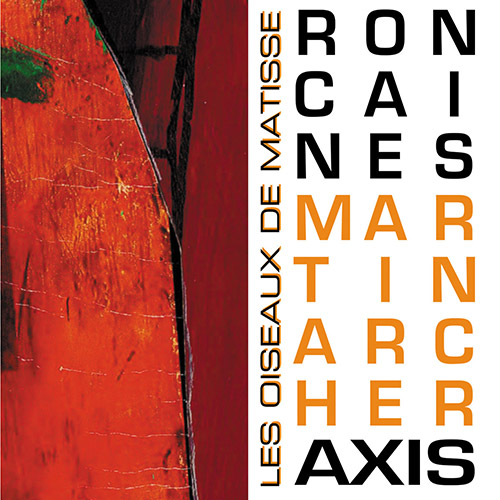

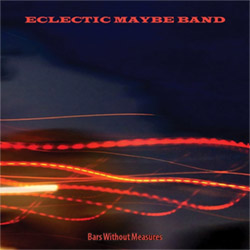
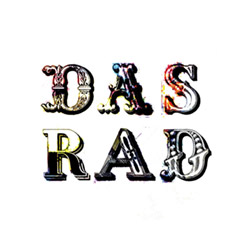

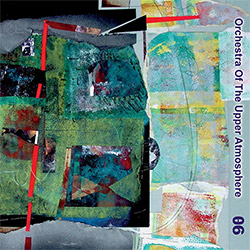
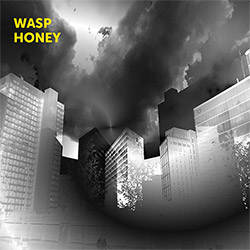

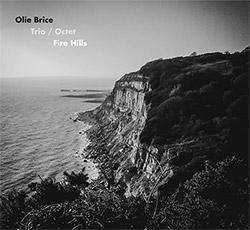
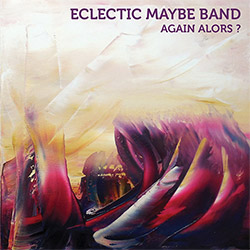


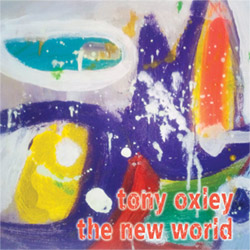

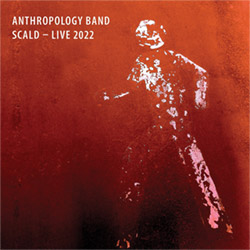
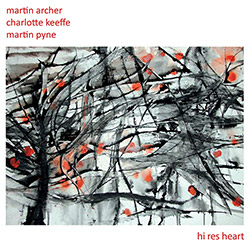


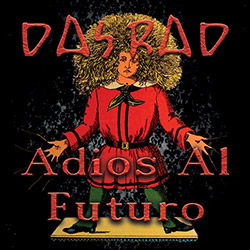



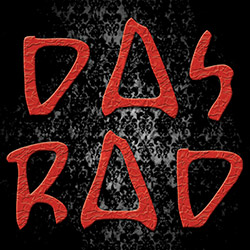
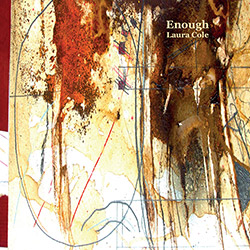
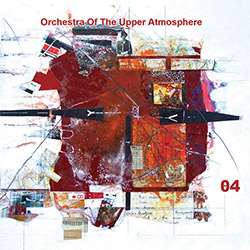












![Deupree, Jerome / Sylvie Courvoisier / Lester St. Louis / Joe Morris: Canyon [2 CDs]](https://www.teuthida.com/productImages/misc4/36404.jpg)


![Eternities: Rides Again [CASSETTE]](https://www.teuthida.com/productImages/misc4/36247.jpg)

![Lopez, Francisco: Untitled (2021-2022) [2 CDs]](https://www.teuthida.com/productImages/misc4/36438.jpg)




![Eventless Plot | Haarvol: The Subliminal Paths [CASSETTE + DOWNLOAD]](https://www.teuthida.com/productImages/misc4/36232.jpg)












![Eventless Plot | Francesco Covarino: Methexis [CASSETTE + DOWNLOAD]](https://www.teuthida.com/productImages/misc4/36231.jpg)



![Das B (Mazen Kerbaj / Mike Majkowski / Magda Mayas / Tony Buck): Love [VINYL]](https://www.teuthida.com/productImages/misc4/36329.jpg)



![Hemphill Stringtet, The: Plays the Music of Julius Hemphill [VINYL]](https://www.teuthida.com/productImages/misc4/36409.jpg)



![Halvorson, Mary Septet: Illusionary Sea [2 LPS]](https://www.teuthida.com/productImages/misc4/17952.jpg)






![Money : Money 2 [2 CDs]](https://www.teuthida.com/productImages/misc4/35894.jpg)




![Klinga, Erik: Elusive Shimmer [VINYL]](https://www.teuthida.com/productImages/misc4/36258.jpg)
![CHANGES TO blind (Phil Zampino): Volume 9 - I Wave on a Fine Vile Mist [CD + DOWNLOAD]](https://www.teuthida.com/productImages/misc4/36061.jpg)

![Wallmart / Rubbish: Asset Protection [split CD]](https://www.teuthida.com/productImages/misc4/35900.jpg)


![+Dog+: The Family Music Book Vol. 5 [2 CDs]](https://www.teuthida.com/productImages/misc4/35897.jpg)
![Kuvveti, Deli : Kuslar Soyledi [CASSETTE w/ DOWNLOAD]](https://www.teuthida.com/productImages/misc4/36107.jpg)

![Nakayama, Tetsuya: Edo Wan [CASSETTE w/ DOWNLOAD]](https://www.teuthida.com/productImages/misc4/36105.jpg)




![Yiyuan, Liang / Li Daiguo: Sonic Talismans [VINYL]](https://www.teuthida.com/productImages/misc4/35957.jpg)
![Brown, Dan / Dan Reynolds: Live At The Grange Hall [unauthorized][CASSETTE]](https://www.teuthida.com/productImages/misc4/36245.jpg)








![Palestine, Charlemagne / Seppe Gebruers: Beyondddddd The Notessssss [VINYL]](https://www.teuthida.com/productImages/misc4/36206.jpg)
![Palestine, Charlemagne / Seppe Gebruers: Beyondddddd The Notessssss [NEON GREEN VINYL]](https://www.teuthida.com/productImages/misc4/36207.jpg)

![Laubrock, Ingrid: Purposing The Air [2 CDs]](https://www.teuthida.com/productImages/misc4/35639.jpg)

![Yoko, Ono / The Great Learning Orchestra: Selected Recordings From Grapefruit [2 CDs]](https://www.teuthida.com/productImages/misc4/35841.jpg)









![Zorn, John / JACK Quartet: The Complete String Quartets [2 CDs]](https://www.teuthida.com/productImages/misc4/35609.jpg)

![Lonsdale, Eden: Dawnings [2 CDs]](https://www.teuthida.com/productImages/misc4/35480.jpg)



![Sorry For Laughing (G. Whitlow / M. Bates / Dave-Id / E. Ka-Spel): Rain Flowers [2 CDS]](https://www.teuthida.com/productImages/misc4/35985.jpg)

![Rolando, Tommaso / Andy Moor : Biscotti [CASSETTE w/ DOWNLOADS]](https://www.teuthida.com/productImages/misc4/36106.jpg)


![Electric Bird Noise / Derek Roddy: 8-10-22 [CD EP]](https://www.teuthida.com/productImages/misc4/35970.jpg)








![Elephant9 : Mythical River [VINYL]](https://www.teuthida.com/productImages/misc4/34624.jpg)



![Elephant9 with Terje Rypdal: Catching Fire [VINYL 2 LPs]](https://www.teuthida.com/productImages/misc4/35355.jpg)
![Deerlady (Obomsawin, Mali / Magdalena Abrego): Greatest Hits [VINYL]](https://www.teuthida.com/productImages/misc4/34876.jpg)






![Surplus 1980: Illusion of Consistency [CD]](https://www.teuthida.com/productImages/misc4/35069.jpg)
![Staiano, Moe: Away Towards the Light [VINYL + DOWNLOAD]](https://www.teuthida.com/productImages/misc4/35037.jpg)
![Coley, Byron: Dating Tips for Touring Bands [VINYL]](https://www.teuthida.com/productImages/misc4/17906.jpg)

![Lost Kisses: My Life is Sad & Funny [DVD]](https://www.teuthida.com/productImages/misc4/lostKissesDVD.jpg)